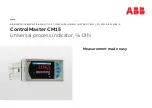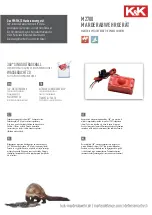
A2: Various NC/PLC interface signals and functions
1.2 NC/PLC interface signals
Basic Functions
Function Manual, 09/2011, 6FC5397-0BP40-2BA0
41
1.2.5
Signals to channel
DB21, ... DBX6.2 (delete distance-to-go)
The rising edge on the interface signal generates a stop on the programmed path in the corresponding NC
channel with the currently active path acceleration. The path distance-to-go is then deleted and the block change
to the next part-program block is enabled.
1.2.6
Signals to axis/spindle
DB31, ... DBX1.0 (drive test travel enable)
If machine axes are traversed by special test functions such as "function generator", an explicit drive-test-specific
enable is requested for the movement:
DB31, ... DBX61.0 = 1 (drive test travel request)
The movement is carried out once the movement is enabled:
DB31, ... DBX1.0 == 1 (drive test travel enable)
DB31, ... DBX1.3 (axis/spindle disable)
Axis disable when machine axis is at rest
No traversing request (manual or automatic) is carried out for a machine axis at rest and NC/PLC interface
signal:
DB31, ... DBX1.3 == 1 (axis / spindle disable)
The traversing request is maintained. If the axis disable is cancelled when a traversing request is pending DB31,
... DBX1.3 = 0 the movement is carried out.
Axis disable when machine axis in motion
When machine axis is in motion and NC/PLC interface signal DB31, ... DBX1.3 == 1 the movement of the
machine axis is decelerated to a standstill via the axis-specific brake characteristics currently active or, if it is part
of an interpolated path movement or coupling, it is decelerated on a path or coupling-specific basis.
The movement is continued if the axis disable is canceled by another pending traversing request: DB31, ...
DBX1.3 = 0.
Spindle disable
The response is determined by the current spindle mode:
• Control mode: Speed setpoint = 0
• Positioning mode: See above "Axis disable".
NOTICE
It is the sole responsibility of the machine manufacturer/system startup engineer to take
suitable action/carry out appropriate tests to ensure that the machine axis can be traversed
during the drive test without putting personnel or machinery at risk.
















































